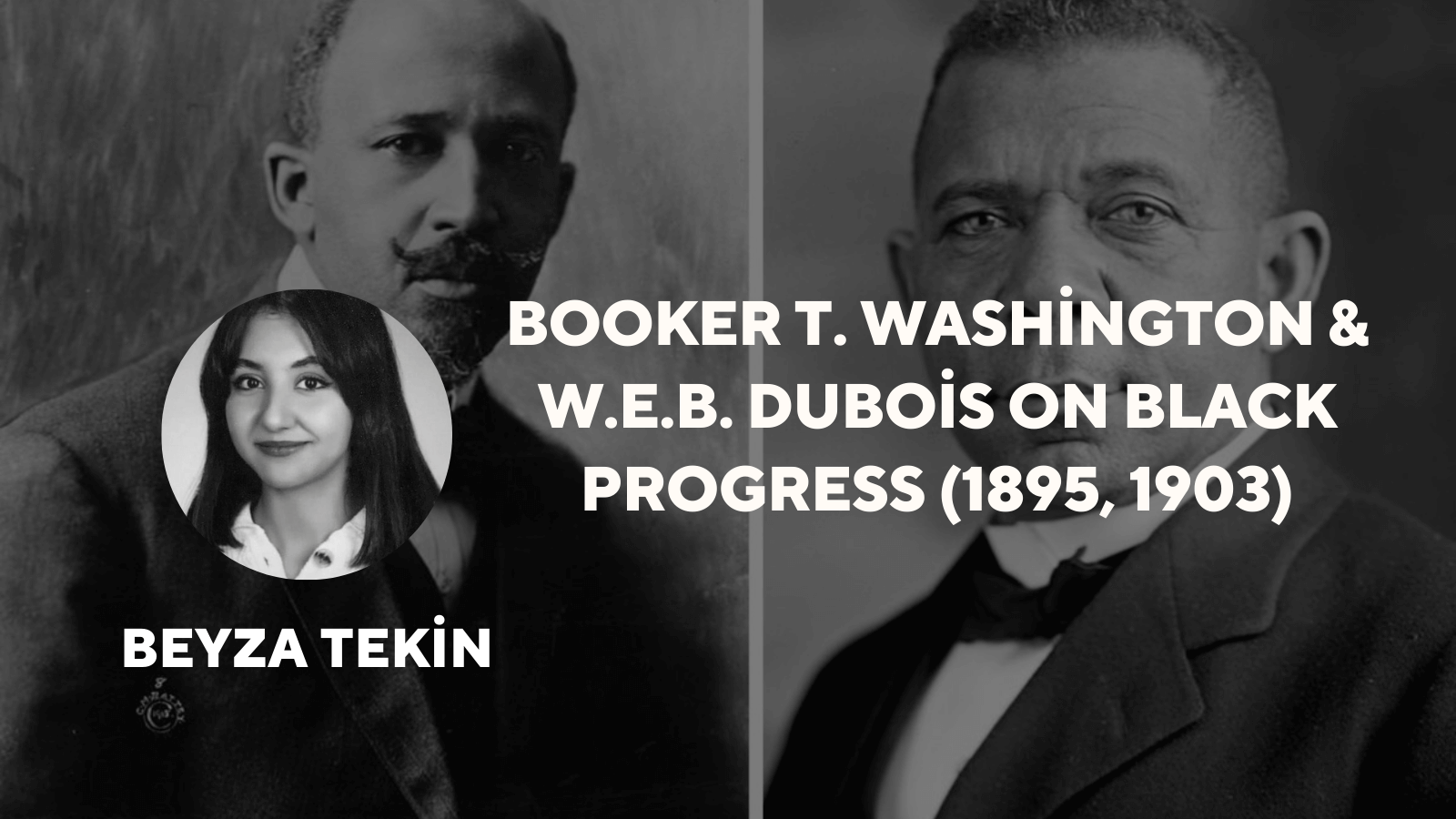Dissatisfaction with new social developments in America led to the Progressive Period, also known as the Age of Reform, which was called after the multiple “progressive” groups that gathered different audiences around different reforms. Whatever their goals, “reform” seized on rapidly. These changes further marginalized Black Americans in American public life. The promises of Reconstruction were ultimately rejected when segregation and disenfranchisement gave rise to persistent racist systems. Black Americans of the Progressive Period who rebelled included Booker T. Washington and W.E.B. DuBois. Booker T. Washington, born into slavery, became a famous African American thinker of the 19th century and founded Tuskegee Normal as an institution of higher learning. Sociologist and civil rights advocate W.E.B. DuBois was regarded as one of his day’s most influential African thinkers.
Washington, a prominent proponent of African American progress, gave a speech arguing that vocational training was the best way to achieve racial equality for African Americans. In this speech, he frequently used the phrase “Cast down your bucket where you are!” with different expressions when addressing different groups. In this quote, he emphasized the value of hard labor and steady advancement for black people, and he made the case that they should stay in agriculture and throw down their buckets there rather than try to enter politics and seek allies among white people who could aid them. Since Black Americans made up one-third of the population of the South and could significantly contribute to its economic growth, he reasoned that by aiding black people, white people were also benefiting themselves. He felt that blacks would ultimately attain political and social equality based on their economic successes when he said, “In all things that are purely social, we can be as separate as the fingers, yet one as the hand in all things essential to mutual progress.” Also, he explained how a society without “race” would positively affect economic development with these words: “No race that has anything to contribute to the markets of the world..” Thus, he implied the economic power that can be achieved when both sides unite.
Leading black thinker W.E.B. DuBois opposed Booker T. Washington’s demands for compromise. Washington said the following in his address, which DuBois implied that black people had given up their rights: “…at least for the present, three things, — First, political power, Second, insistence on civil rights, Third, higher education of Negro youth” He believed it was both conceivable and impossible to produce good economic development for the nine million people who were politically disenfranchised, enslaved, and with only a very minimal chance to develop their special people because he believed Washington’s rhetoric was unlikely to materialize by referring to history to back up this claim and got a clear “No” response. He adds that similar outcomes may occur if Washington’s policy changes and black people give up their rights: “1. The disfranchisement of the Negro 2. The legal creation of a distinct status of civil inferiority for the Negro. 3. The steady withdrawal of aid from institutions for the higher training of the Negro”. DuBois’ primary motivation was not to worsen the rights of blacks, who were not very well in any way, so he did not support this reform.
To conclude, W.E.B. Du Bois and Booker T. Washington, two legendary figures in the black community, strongly disagreed about advancing black people’s social and economic well-being. Washington advocated for black people to put up with discrimination for the time being and focus on bettering themselves via hard labor and monetary success. He supported promoting the values of perseverance, initiative, and thrift, as well as education in farming, industry, and the arts. He said that by doing this, Black Americans would gain the respect of white people, be fully acknowledged as citizens, and be absorbed into all spheres of society. Washington’s plan, according to DuBois, would only serve to further oppress white people. He said that a tiny group of college-educated blacks might affect social change and criticized Washington’s policies for failing to protect the political rights of the Negros, which had a direct impact on their lives as well.
References
Washington, Booker T. & W.E.B. DuBois on Black Progress (1895, 1903) https://www.americanyawp.com/reader/20-the-progressive-era/booker-t-washington-w-e-b-dubois-on-black-progress-1895-1903/
Booker T. Washington, Up from Slavery, Chapter XIV; W.E.B. DuBois, The Souls of Black Folk: Essays and Sketches.



